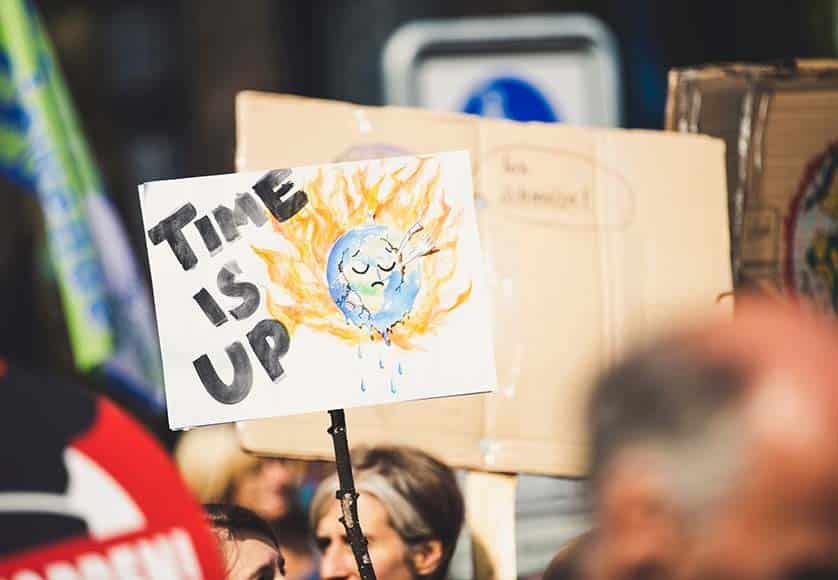What we can do about ‘global boiling’
Photo: Markus Spiske - Unsplash
In New York on July 27, United Nations Secretary General António Guterres threw all diplomatic euphemisms onto the bonfire of climate change. In a passionate speech, the former Portuguese Prime Minister once again urged international leaders to act now, not tomorrow.
Climate change, he said, had moved from an era of global warming into a “terrifying” new phase of “global boiling,” a “disaster” for the entire planet.
Guterres was reacting to a flurry of statements over the last few days by international climate scientists and weather experts. Scientists at the World Meteorological Organization (WMO) revealed July has been the hottest month ever experienced by humanity, with July 6 the hottest single day. This alarming pronouncement came several days before the month was even over.
“Scientists are unequivocal: humans are to blame,” Guterres fumed. Indeed, as August begins, no reasonable person can continue to deny the impact of climate change. As this article went to press, 50% of Americans were under ‘extreme heat warnings’, while Phoenix, Arizona had been experiencing temperatures above 43ºC for nearly a month. Several European countries – notably Spain, Italy and Greece – lived through an unbearable sequence of July days with temperatures above 40ºC, with uncontrollable wildfires including on the island of Rhodes. Portugal has not been exempt, although the scale of this year’s wildfires has thankfully not, at least so far, reached that of 2017. Asia has had intense rain across many countries and Africa has also experienced above average severe heat.
It is hard to deny that this is portentous. The 2015 Paris Agreement set a target of limiting global warming to 1.5ºC above pre-industrial levels, to avoid tipping points which might prove disastrous for the planet and almost impossible to scale back. We are now approaching this threshold.
So what can we do to mitigate this existential threat and adapt our societies? Guterres is adamant, we need to “turn burning heat to burning ambition.” Let’s take a look at some of these things. Many are surprisingly achievable, and most of us can participate in one way or another, often at relatively moderate personal financial cost.
Some things individuals can choose to do
Insulate our homes, to avoid losing heat in winter and keep cool in summer
Reduce our consumption of meat and dairy (cows are huge emitters of ultra-damaging methane gas)
Drive and fly less, walk and cycle more. The health benefits are obvious. Going forward, trains and electric vehicles will become more available and better priced…
In extreme heat, drink two litres of water minimum a day, and reduce alcohol and coffee consumption which dehydrate
Some things cities can do
Greening: planting trees reduces CO2 emissions, provides shade and cooler air
Create cooling centres
Provide alert systems for extreme weather events, and identify vulnerable individuals
Paint roofs white to lower temperatures by several degrees
Some things lawmakers should do
Outlaw greenhouse gas production to complete the switch to renewable energy
Introduce climate change education as a default pillar of education systems
Europe and the Mediterranean region are among the regions of the world getting hotter fastest. We know the Iberian Peninsula is particularly vulnerable, with many forms of agriculture seriously threatened. Portugal has bet heavily on renewable energy, and comes in at seventh place in the European Union with over 40% of heating and cooling needs met from renewable energy.
However, don’t hesitate to prod local and national governments which greenwash or procrastinate … There are many forms of pressure citizens can exert on politicians, and on businesses too! In the context of climate change, populations are likely to be less indulgent of corruption, which will look even more old-fashioned.
Private financing also has an essential role to play in reaching net zero. The solutions of the future can often provide great investment opportunities…
The impact of the climate emergency is a striking example of social inequality. The most disadvantaged are the hardest hit, by far, and those who will have the greatest difficulty in adapting. The average person in the UK is responsible for 7.1 tonnes of CO2 emissions every year, while in India the average person accounts for less than 2 tonnes. In the UK, Rishi Sunak’s Conservative government seems to be edging away from the progress achieved at COP26 … perhaps for electoral reasons? About two thirds of adults in the UK are concerned about the effects of climate change. However, less than two thirds are keen to make changes in their own lives.
A very readable book by Kimberly Nicholas, a sustainability scientist, Under the Sky We Make, sets out how we can create change.
By James Mayor


